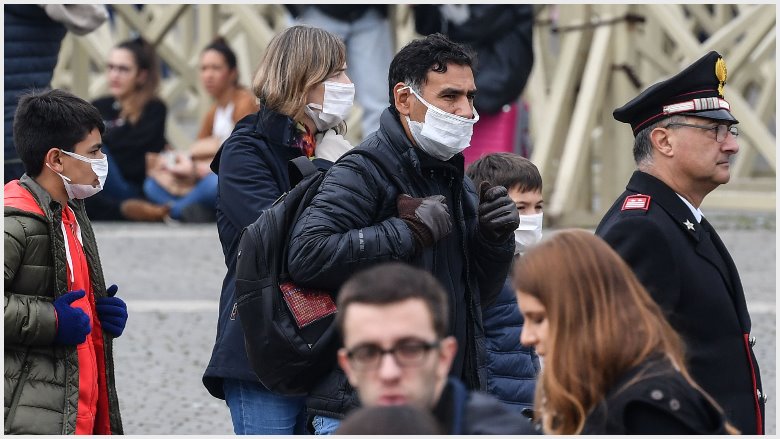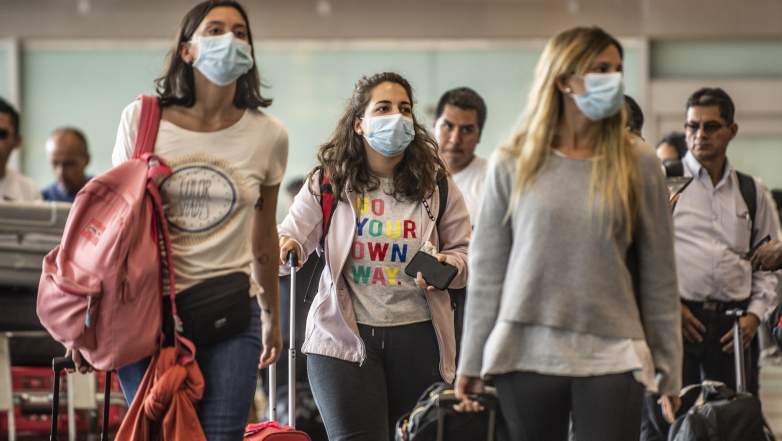
With concerns over coronavirus exploding throughout the United States and world, people have a lot of questions about how the virus works. Among them: Can you get coronavirus twice?
To be sure, there are still a lot of unknowns about coronavirus. That’s partly simply because of the newness of it, meaning there isn’t a lot of data to study yet; it’s also because it originated in notoriously secretive China, which has a vested interest in downplaying the seriousness and doesn’t respect a free media.
As of March 3, 2020, the Center for Disease Control and Protection was reporting, “CDC is responding to an outbreak of respiratory disease caused by a novel (new) coronavirus that was first detected in China …Community spread means some people have been infected and it is not known how or where they became exposed.”
Here’s what you need to know about whether you can get coronavirus twice. The answer is a fairly complicated one with a number of unknowns.
There Are Known Cases of People Testing Positive for Coronavirus Twice But It’s Possible the Virus Remained Dormant in Their System

GettyPassengers walk while wearing protective masks, as a preventive measure regarding the COVID-19 virus, at Jorge Chavez International Airport, in Lima on February 27, 2020.
The easy answer is that, yes, people have tested positive for the coronavirus twice. That’s because there are documented cases of that occurring in China and Japan, according to Fortune. However, there are some big caveats to that answer. For one, it’s always possible that, in some or all of those cases, people were erroneously given the all-clear by health care workers.
A protective antibody emerges after you get the virus, according to USA Today. “However, in certain individuals, the antibody cannot last that long. For many patients who have been cured, there is a likelihood of relapse,” said Li QinGyuan, director of pneumonia prevention and treatment at China Japan Friendship Hospital in Beijing, told USA Today. Poland has deemed reinfection “very likely,” the news site reported. Another expert told USA Today that it’s just not clear yet how long the immunity lasts.
Sharon Lewis, director of the Peter Doherty Institute for Infection and Immunity in Melbourne, told Fortune Magazine that “being re-infected with COVID-19 is possible” but would be surprising. She stressed that it’s also possible the people aren’t really getting coronavirus twice, but that they were misdiagnosed.
USA Today quoted Li QinGyuan, director of pneumonia prevention and treatment at China Japan Friendship Hospital in Beijing, as saying that people can relapse. “However, in certain individuals, the antibody cannot last that long. For many patients who have been cured, there is a likelihood of relapse,” the director said.
USA Today also spoke to Eng Eong Ooi, a professor of emerging infectious diseases at Singapore’s Duke-NUS Medical School, who said there’s not enough data yet to determine how long a person’s immunity will last once they get the disease and appear to recover from it.
“Inflammation appears to be a cause of severe COVID-19. It also helps in the development of immunity,” he said to the news site. But “any conclusion will be premature, I fear. (We) will need studies.”
Dr. Babak Ashrafi said, according to Metro.co.uk: “Because this strain of coronavirus is new, we don’t have enough data to understand how long our immunity lasts after initial infection.”
South China Morning Post, citing a report from the Shanghai newspaper The Paper, reported that a man, 36, died of respiratory failure in Wuhan five days after he was discharged from the hospital. The cause of death was coronavirus.
According to the newspaper, Fangcang Hospital in Wuhan issued an “emergency notice” saying “more discharged patients had been readmitted” after becoming sick again. The hospital is now “conducting antibody tests” before discharging patients to make sure they’ve completely recovered.
Swab samples used by hospitals can detect different amounts of the virus, and could lead to some false negatives, Fortune reported.
According to Express, a Japanese tour bus operator in her 40s “has tested positive for the coronavirus strain for the second time.” She was first diagnosed with the virus in late January, released in February, and then tested positive again, Express reported.
Philip Tierno Jr, professor of microbiology and pathology at New York University, told Express: “Once you have the infection, it could remain dormant and with minimal symptoms. And then you can get an exacerbation if it finds its way into the lungs.”
Of course, that would mean that the person always had the virus and it reappeared, versus them not having it at all and getting it twice.
According to MSN.com, coronavirus spreads through “direct contact with respiratory droplets.” So when someone sneezes or coughs, other people can get it by touching objects that those droplets have landed on. MSN.com reports that experts aren’t sure yet whether coronavirus can be caught twice, and that concerns about that largely emanated from the Japanese case; it’s possible that the virus could remain in the lungs but people tested through the nose or throat could test negative for it.
CDC reports that coronavirus “is thought to spread mainly from person-to-person. Between people who are in close contact with one another (within about 6 feet). Through respiratory droplets produced when an infected person coughs or sneezes. These droplets can land in the mouths or noses of people who are nearby or possibly be inhaled into the lungs.”
READ NEXT: Coronavirus Myths.